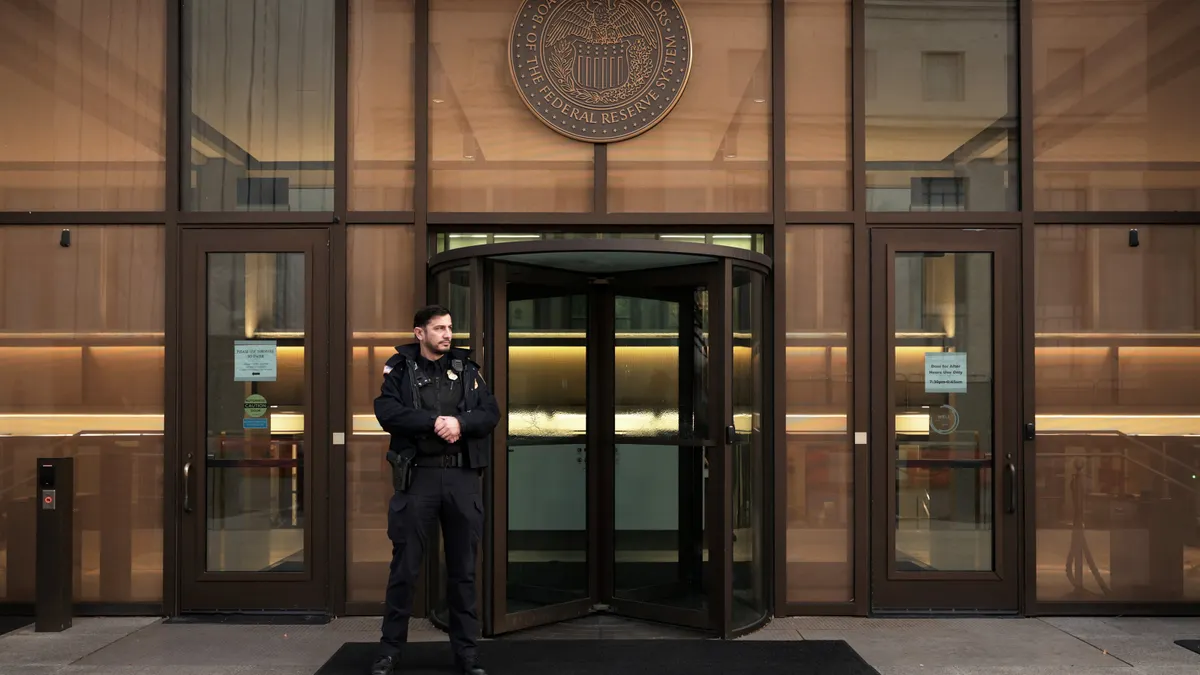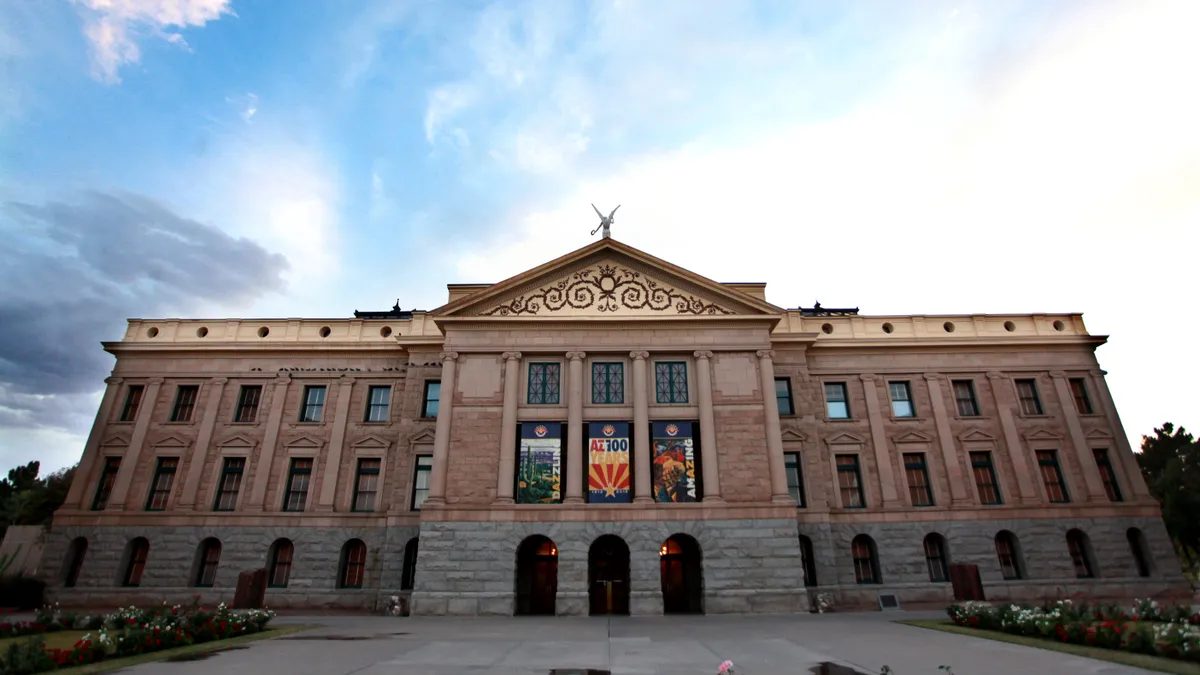Companies battling payments fraud need better information- and data-sharing, enhanced consumer education and help from telecommunications and social media companies, according to suggestions this month in response to a federal call for ideas to tackle the problem.
Those were among the recommendations within dozens of comments filed by payments companies, banks, trade and consumer groups in response to a June request for information from the Federal Reserve, the Office of the Comptroller of the Currency and the Federal Deposit Insurance Corp.
As payments fraud has become a growing industry concern, bank regulators requested input on ways to address the problem, with a particular focus on check fraud. The comment period, which closed Sept. 18, drew close to 200 comments.
Trade group the Financial Technology Association called for a “coordinated national fraud strategy” that includes the formation of a federal and state task force and awareness campaigns.
Zelle operator Early Warning Services, in its comment letter, offered a five-point plan that underscored its view that fraud “is not the burden of financial institutions alone,” and necessitates a collaborative, comprehensive approach.
EWS, owned by a consortium of major U.S. banks, operates peer-to-peer payment network Zelle, which has been under fire from lawmakers and consumer advocates for allegedly allowing fraud to proliferate on its platform. Zelle’s payment volume last year exceeded $1 trillion for the first time.
The Scottsdale, Arizona-based company also suggested a task force be created that includes payments companies and banks, regulators, social media platforms and telecom companies to coordinate on fraud prevention; information sharing be standardized across stakeholders with speed in mind; enhanced law enforcement coordination; and investments to scale consumer education initiatives.
A bipartisan group of senators proposed legislation in June that would create a task force to study payment scams and recommend ways for regulators and lawmakers to thwart them.
EWS also called for bolstering sector-wide engagement and best practices across the “scam lifecycle,” because social media and telecom firms “play critical roles” in enabling and disrupting scams, according to the letter.
“The fight against payments fraud can't be won in silos,” Ben Chance, head of identity and payments risk at Early Warning, said in a Friday news release.
Others, such as ACH Network governor Nacha and the National Consumer Law Center, also emphasized the need to involve social media and telecom providers and the Federal Communications Commission in the conversation.
Social media and telecom companies “must be asked to provide additional insights related to payments fraud and scams,” wrote Michael Herd, executive vice president of ACH Network administration at Nacha. “Both types of entity could be effective collaborators in detecting, preventing, and mitigating payments fraud and scams by identifying accounts involved in active fraud schemes, or in disseminating information that induces consumers to commit fraud or become unwitting accomplices in the illicit transfer of funds.”
Herd also suggested regulators consider rules requiring telecom providers, such as Verizon Communications, AT&T and Comcast, to identify scams that use voice and text messages.
The FTA called on bank regulators to reform Bank Secrecy Act/anti-money laundering requirements, modernize Customer Identification Program rules and update confidential supervisory information sharing rules.
The fintech trade group also suggested regulatory guidance and support for the development and adoption of advanced fraud detection tools, including clarifying that many applications of artificial intelligence — especially in fraud and compliance contexts — are not high-risk.
Further, the FTA urged regulators to expand fintechs’ access to core payment systems such as FedNow and modernize charter options, including supporting the development of optional federal payments charters, and promoting the move away from paper checks.
Fintechs and payments firms are “well-positioned” to combat fraud threats, but “doing so effectively requires modern policy frameworks and approaches, clear regulatory expectations, enhanced data sharing, and public-private collaboration,” FTA President and CEO Penny Lee wrote in the Sept. 18 letter.
The U.S. Faster Payments Council labeled data standardization as a crucial area for reform. “The lack of universal definitions, reporting timelines, and coding systems for fraud has been a significant obstacle,” Reed Luhtanen, the group’s CEO and executive director, wrote in a Sept. 9 letter.
The NCLC, in its comment letter filed Sept. 15, urged regulators to strengthen laws that require banks and other companies to protect consumers from fraudulent charges, and improve enforcement of BSA/AML obligations as it relates to banks that receive fraudulent payments.
Regulators should employ “a holistic approach to the problems caused by fraud and scams instead of just relying on consumer education and information dissemination,” the NCLC said in its letter.
In its comment letter, dated Sept. 15, card network Visa sought to pitch its services and capabilities for use in the broader fight against fraud.
Those include integrating the real‑time artificial intelligence risk‑scoring capabilities of Featurespace – the cybersecurity and analytics firm Visa bought last year – into Treasury Department and Federal Reserve System payments to prevent potential fraud, and partnering with government agencies to expand fraud‑prevention education.
EWS has also pitched Zelle as a tool the Treasury Department can use as the federal government eliminates paper checks.
On Capitol Hill, a House subcommittee last week heard from experts on fraud threats; House Financial Services Committee Chair French Hill, a Republican from Arkansas, and two other lawmakers told Fed Chair Jerome Powell in a Sept. 17 letter that “[a]gency action to safeguard consumers from payments fraud is well overdue,” and the issue will “require increased cross-agency collaboration.”
Correction: In a previous version of this article, Nacha was misidentified. It governs the ACH Network.






















